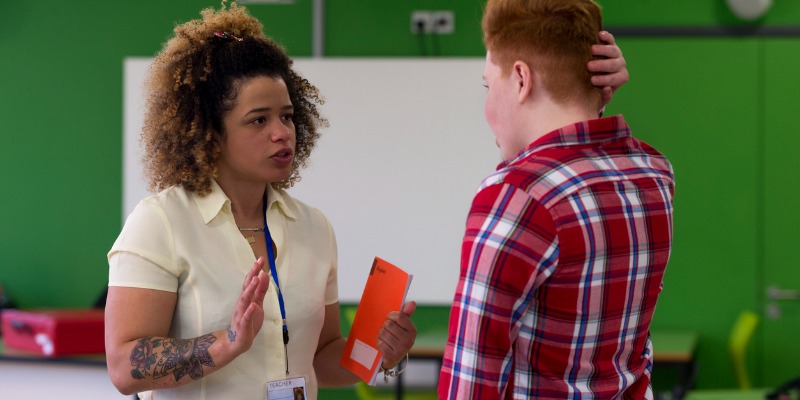Hiring more ‘learning coaches’ won’t fix Ontario schools

It’s often said that the definition of insanity is doing the same thing over and over and expecting different results. If so, the Ontario government’s education policies are insane.
In a recent news conference, Ontario Education Minister Stephen Lecce announced that his department will spend $180 million to help students improve their math, reading and writing skills. It’s billed as a comprehensive plan that will finally fix public education.
However, this “comprehensive plan” is mainly a promise to hire 1,000 more educators. But they won’t teach in regular classrooms. Rather, Lecce pledged to create “math action teams” and double the number of math learning coaches in schools. He also plans to hire 700 additional frontline reading specialists to do the same kind of work.
Learning coaches typically spend much of their time planning and delivering professional development sessions for teachers. Some work directly in schools while others operate out of centralized offices. They get paid at least as much as teachers but don’t have classrooms of their own. No doubt Lecce’s plan will be a boon for the consultant industry and produce even more opportunities for non-teaching teachers to find employment and good salaries in the public school system. As if school board budgets weren’t bloated enough, now they must prepare for even more consultants whose job will be to look busy but not really help students learn.
Why won’t a fresh crop of math coaches improve student math skills?
For starters, the people who would likely help organize “math action teams” in Ontario seem more interested in promoting social justice than teaching math. For example, the coordinator of Secondary Mathematics and Academic Pathways in the Toronto District School Board recently claimed that phrases such as “Just stick to math” and “Of course math is neutral because 2 + 2 = 4” are “covert examples of white supremacy.”
Meanwhile, one of the leading math educators in the Halton District School Board sees math as an opportunity to push his left-wing political views on students. In response to Premier Ford’s insistence that Ontario math teachers stick with math, this educator called the premier a “racist windbag.” To make sure there was no doubt about where he stands, he tweeted a photo of himself wearing a “woke math” t-shirt.
Again, it’s hard to imagine new math action teams sticking to math because the Ford government has made little effort to wrestle control of the school system away from woke ideologues. Ford and Lecce even stood idly by for months while a teacher in the Halton District School Board wore giant prosthetic breasts to teach shop, drawing ridicule from around the world.
Similarly, there’s little indication that the Ford government understands how to improve reading skills. Most Ontario schools remain in the grips of the “three cuing” approach, which encourages students to guess the words on a page rather than sound them out. However, the evidence clearly shows that phonics (teaching students how to sound out individual letters and words) gets better results.
Nevertheless, there’s no need for the province to mandate one teaching method over the other. Rather it should set clear learning goals and standards, then hold schools accountable for their results with regular standardized testing. That way parents can choose which schools they want their children to attend. Of course, schools that use phonics will likely become more popular with parents, since they will almost certainly record better results.
As for math, the Ford government needs to truly emphasize mastery of the basics. This means banishing woke math from schools and making students memorize basic facts and learn standard algorithms for addition, subtraction, multiplication and division. As with reading, the province should set clear numeracy standards and ensure schools are held accountable for their results.
More learning coaches and consultants are not the solution. If they truly are top quality teachers, they should be in the classroom with students. If they aren’t, they shouldn’t work in schools at all. As long as the government keeps doing more of the same, it can expect the same results. A different approach is needed, one that doesn’t involve expanding school board bureaucracies.
Author:
Subscribe to the Fraser Institute
Get the latest news from the Fraser Institute on the latest research studies, news and events.

